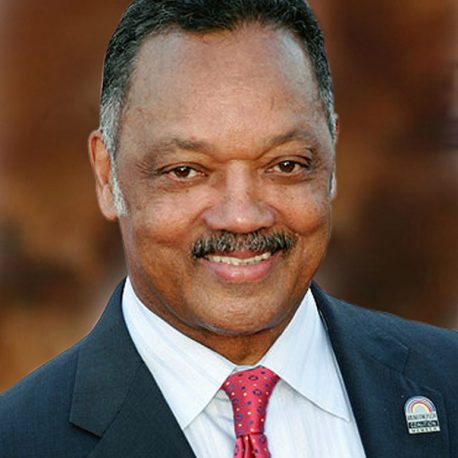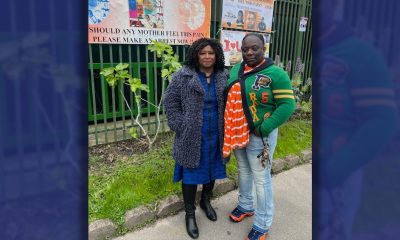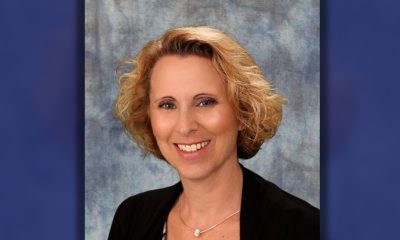Activism
Opinion: The Murder of Ahmaud Arbery — and Our Continuing Terror

Today there is a national outcry about the murder of Ahmaud Arbery. The public condemnation has forced a belated response.
Those accused of his murder finally have been arrested. His murder has become a global embarrassment for whites.
For Blacks, however, it is another humiliation, a continuing terror. It is the normal silence, however, that condemns thousands of African Americans to unjust deaths and millions to shattered lives. When the camera turns away, the savage injustice that embarrasses us becomes simply business as usual.
The horror of Ahmaud Arbery’s murder is now well known. The 25-year-old Black man went for a jog down the middle of the street in the middle of the day on Feb. 23. Two white men decided he was suspicious, hunted him down and shot him point-blank in the middle of the street at 1 p.m.
Local law enforcement had video evidence of the crime. Yet no arrest was made until 74 days later, two months and two weeks after the murder. Local authorities chose not to act. Two U.S. senators said nothing. The white church — that had blessed slavery, segregation, apartheid in South Africa — was silent.
Why did the arrests finally take place? Because an intrepid reporter from the New York Times investigated the story and made it public; the murder video was leaked to the public on the 72nd day after Ahmaud’s murder.
As the public outrage grew, the arrests were made. Never forget, as one commentator noted, they did not make the arrests because THEY saw the incriminating video. They made the arrests because WE saw the video. Embarrassed, faced with an aroused community and an international scandal, they finally acted.
So it goes. African Americans suffer in silence the savage injuries of institutionalized racism.
We live in northern ghettos — driven there in the early part of the last century by terrorism — most strikingly the Ku Klux Klan and their signature lynchings. The Equal Justice Initiative reports there were 4,084 lynchings of Blacks in the South from 1877 to 1950. The Klan, embraced by and often made up of the white gentry of the South, often gathered at their churches to organize the public lynchings. They terrorized Blacks to end the fusion multiracial coalitions that grew up in the Reconstruction and to take back control of their states.
The lynchings and violence were greeted with silence, if not approval. White authorities, white churches, white society turned their heads if they weren’t applauding in approval.
Fleeing north, Blacks were redlined into ghettos, with jobs hard to get, and discrimination closing doors. To this day, African Americans are last hired and first fired. We suffer the worst poverty, the highest unemployment, the highest childhood hunger and malnutrition, the most inadequate health care. This reality is sustained by the silence of white elites, the silence of the white church, the silence of the evangelicals, the silence of the best-minded citizens.
Then, the virus hits, and its most lethal effect is on those who are vulnerable: the elderly, the sick, the hungry, those with asthma and obesity. It hits hardest among the suddenly proclaimed “essential workers” who do the work that previously was largely “invisible: the bus drivers, the grocery clerks, the nurses and medical aides. Not surprisingly, African Americans make up a disproportionate number of those killed or infected by the virus.
The racial disparities are so stark that they gain national and international attention. Pundits express shock and outrage at the reports as if they were surprised by the results. Editorials demand reform. Politicians call for action. The informed public is embarrassed.
But little happens: the rescue packages passed by Congress send most of the money to the biggest companies and the most affluent investors. Banks are saved; the post office — with a largely minority workforce — is starved. Hunger spreads. Any expansion of food stamps is blocked.
Arrested for leading nonviolent protests against segregation, Dr. Martin Luther King penned his letter from the Birmingham jail expressing his grave disappointment with the “white moderate” and the “white church.” He suggested that the “great stumbling block” for African Americans seeking their freedom is “not the White Citizen’s Councilor or the Ku Klux Klanner, but the white moderate “who is more devoted to order than to justice.” He decried a religious community “largely adjusted to the status quo, standing as a tail-light behind other community agencies rather than a headlight leading men to higher levels of justice.”
The virus didn’t discriminate. The society enforced the discrimination; the virus just preyed upon its victims. We have gone too long, struggled too hard to adjust to the reality that it is dangerous to be Black while jogging or to be Black in a pandemic.
It isn’t enough to express dismay when the newspapers highlight the horrors. We need leaders and citizens of conscience who will act and not rest until justice is done.
Activism
Oakland Post: Week of April 17 – 23, 2024
The printed Weekly Edition of the Oakland Post: Week of April 17 – 23, 2024

To enlarge your view of this issue, use the slider, magnifying glass icon or full page icon in the lower right corner of the browser window. ![]()
Activism
Oakland Schools Honor Fred Korematsu Day of Civil Liberties
Every Jan. 30, OUSD commemorates the legacy of Fred Korematsu, an Oakland native, a Castlemont High School graduate, and a national symbol of resistance, resilience, and justice. His defiant stand against racial injustice and his unwavering commitment to civil rights continue to inspire the local community and the nation. Tuesday was “Fred Korematsu Day of Civil Liberties and the Constitution” in the state of California and a growing number of states across the country.

By Post Staff
Every Jan. 30, OUSD commemorates the legacy of Fred Korematsu, an Oakland native, a Castlemont High School graduate, and a national symbol of resistance, resilience, and justice.
His defiant stand against racial injustice and his unwavering commitment to civil rights continue to inspire the local community and the nation. Tuesday was “Fred Korematsu Day of Civil Liberties and the Constitution” in the state of California and a growing number of states across the country.
One OUSD school is named in his honor: Fred T. Korematsu Discovery Academy (KDA) elementary in East Oakland.
Several years ago, founding KDA Principal Charles Wilson, in a video interview with anti-hate organization “Not In Our Town,” said, “We chose the name Fred Korematsu because we really felt like the attributes that he showed in his work are things that the children need to learn … that common people can stand up and make differences in a large number of people’s lives.”
Fred Korematsu was born in Oakland on Jan. 30, 1919. His parents ran a floral nursery business, and his upbringing in Oakland shaped his worldview. His belief in the importance of standing up for your rights and the rights of others, regardless of race or background, was the foundation for his activism against racial prejudice and for the rights of Japanese Americans during World War II.
At the start of the war, Korematsu was turned away from enlisting in the National Guard and the Coast Guard because of his race. He trained as a welder, working at the docks in Oakland, but was fired after the bombing of Pearl Harbor in 1941. Fear and prejudice led to federal Executive Order 9066, which forced more than 120,000 Japanese Americans out of their homes and neighborhoods and into remote internment camps.
The 23-year-old Korematsu resisted the order. He underwent cosmetic surgery and assumed a false identity, choosing freedom over unjust imprisonment. His later arrest and conviction sparked a legal battle that would challenge the foundation of civil liberties in America.
Korematsu’s fight culminated in the Supreme Court’s initial ruling against him in 1944. He spent years in a Utah internment camp with his family, followed by time living in Salt Lake City where he was dogged by racism.
In 1976, President Gerald Ford overturned Executive Order 9066. Seven years later, the 9th Circuit Court of Appeals in San Francisco vacated Korematsu’s conviction. He said in court, “I would like to see the government admit that they were wrong and do something about it so this will never happen again to any American citizen of any race, creed, or color.”
Korematsu’s dedication and determination established him as a national icon of civil rights and social justice. He advocated for justice with Rosa Parks. In 1998, President Bill Clinton gave him the Presidential Medal of Freedom saying, “In the long history of our country’s constant search for justice, some names of ordinary citizens stand for millions of souls … To that distinguished list, today we add the name of Fred Korematsu.”
After Sept. 11, 2001, Korematsu spoke out against hatred and discrimination, saying what happened to Japanese Americans should not happen to people of Middle Eastern descent.
Korematsu’s roots in Oakland and his education in OUSD are a source of great pride for the city, according to the school district. His most famous quote, which is on the Korematsu elementary school mural, is as relevant now as ever, “If you have the feeling that something is wrong, don’t be afraid to speak up.”
Activism
WOMEN IMPACTING THE CHURCH AND COMMUNITY
Juanita Matthews, better known as “Sister Teacher,” is a walking Bible scholar. She moved to California from the great state of Arkansas in 1971. Sister Teacher has a passion for teaching. She has been a member of Bible Fellowship Missionary Baptist Church since 1971.

Sister Juanita Matthews
55 Years with Oakland Public School District
The Teacher, Mother, Community Outreach Champion, And Child of God
Juanita Matthews, better known as “Sister Teacher,” is a walking Bible scholar. She moved to California from the great state of Arkansas in 1971. Sister Teacher has a passion for teaching. She has been a member of Bible Fellowship Missionary Baptist Church since 1971. She followed her passion for teaching, and in 1977 became the lead teacher for Adult Class #6. Her motto still today is “Once My Student, Always My Student”.
Beyond her remarkable love for the Lord, Sister Teacher has showcased her love for teaching by working for the Oakland Unified School District for 55 years, all but four of those years spent at Emerson Elementary and Child Development School. She truly cares about her students, making sure they have the tools/supplies needed to learn either at OUSD or Bible Fellowship Missionary Baptist Church.
She’s also had a “Clothes Closet Ministry” for 51 years, making sure her students have sufficient clothing for school. The Clothes Closet Ministry extends past her students, she has been clothing the community for over 50 years as well. She loves the Lord and is a servant on a mission. She is a loving mother to two beautiful children, Sandra and Andre. This is the impact this woman of God has on her church and the community.
-

 Activism4 weeks ago
Activism4 weeks agoOakland Post: Week of March 27 – April 2, 2024
-

 #NNPA BlackPress4 weeks ago
#NNPA BlackPress4 weeks agoCOMMENTARY: D.C. Crime Bill Fails to Address Root Causes of Violence and Incarceration
-

 #NNPA BlackPress4 weeks ago
#NNPA BlackPress4 weeks agoMayor, City Council President React to May 31 Closing of Birmingham-Southern College
-

 #NNPA BlackPress4 weeks ago
#NNPA BlackPress4 weeks agoBeloved Actor and Activist Louis Cameron Gossett Jr. Dies at 87
-

 Community1 week ago
Community1 week agoFinancial Assistance Bill for Descendants of Enslaved Persons to Help Them Purchase, Own, or Maintain a Home
-

 Activism3 weeks ago
Activism3 weeks agoOakland Post: Week of April 3 – 6, 2024
-

 Business1 week ago
Business1 week agoV.P. Kamala Harris: Americans With Criminal Records Will Soon Be Eligible for SBA Loans
-

 Activism2 weeks ago
Activism2 weeks agoOakland Post: Week of April 10 – 16, 2024


















































